Valiant Explores Destiny versus Free Will
I’ve always loved classic science fiction, where in the midst of a terrifying adventure, the author reveals an eye-opening, breathtaking theme. Philip K. Dick is one of my favorite authors, so I may have fallen in love with Minority Report, which was based on one of his short stories. I was spellbound while watching that movie, which so eloquently dealt with an almost impossible-to-understand concept—that free will and destiny can both exist.
That movie and The Adjustment Bureau (also based on a Philip K. Dick story) both influenced and inspired me when I was writing Valiant. I wanted to build a world and write a story that had all the chills and thrills of classic science fiction—from time travel to an invasion of horrible aliens to an end-of-the-world scenario—and I wanted to include that very delicate balancing act between free will and predestination.
I confess, this was a difficult subject to convey and the fact that theologians have argued about this for centuries did not make it easier. Arminianism (free will) and Calvanism (predestination) both have biblical scriptures that prove their point. (I know I over-simplified both of those doctrines.) I happen to be one of those people who believes that both of these concepts are true and that they coexist, so this was the approach that I took while writing Valiant.
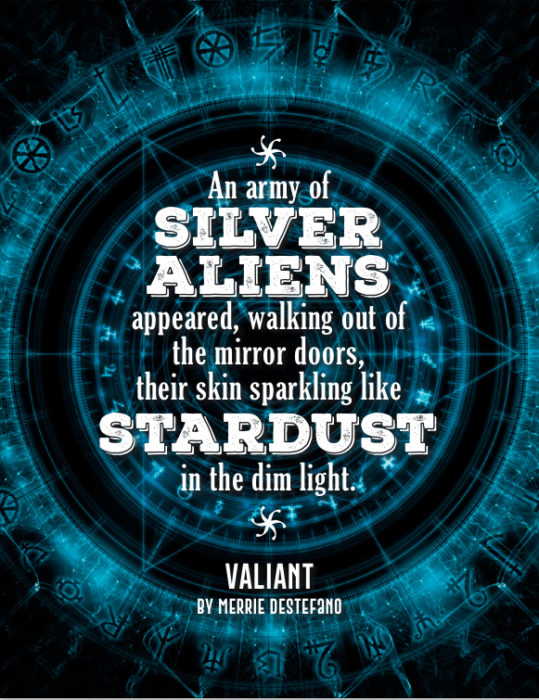 In the book, these concepts are shown most clearly in the way the Xua (the invading aliens) use time travel to their advantage. The good aliens (Aerithin and his rebels) are trying to save the human race from extinction; the bad aliens (let’s call them the Military Xua) want to take over Earth, claim it for themselves, and kill any human who gets in their way. Although their motive is not explained in book one, it will be revealed in book two and, trust me, the Military Xua have a creepy motive.
In the book, these concepts are shown most clearly in the way the Xua (the invading aliens) use time travel to their advantage. The good aliens (Aerithin and his rebels) are trying to save the human race from extinction; the bad aliens (let’s call them the Military Xua) want to take over Earth, claim it for themselves, and kill any human who gets in their way. Although their motive is not explained in book one, it will be revealed in book two and, trust me, the Military Xua have a creepy motive.
Since the Xua are adept at time travel, they know this: Some events can not be changed, no matter how hard anyone tries. These events are called cascading events. Think of a row of dominoes, all lined up and standing. If you push the first domino over, all the others will fall down too. But you must set that first domino in motion. That’s how cascading events work—they are the predestined events that set all subsequent events in motion. They cannot be changed or prevented, no matter how many times someone travels through time and tries.
One cascading event mentioned in Valiant is the launch of the rocket ship Valiant, which is bound for Titan. Unfortunately, that’s where humans will first encounter the Xua and it’s all downhill for us after that. Since no one, human or Xua, can stop the Valiant from launching, the Rebel Xua have taken a different tactic.
They continually try to save Sara, the main character in the book, because they know she will then, in turn, try to save her younger brother, Gabe. Why must she save him? That’s not explained until the end of the book and won’t be completely explained or shown until book two. But suffice to say, Gabe is a key element in accomplishing the goal of the Rebel Xua—that of saving Earth.
Isn’t that how destiny seems to work?
It must happen, it will happen, but we don’t always know why or how. It’s like an act of faith. Sara doesn’t know why she has to save her brother, but she doesn’t need to—she loves him and therefore she will do anything to keep him alive.
On top of that, somehow, saving her little brother will save the world. Sara doesn’t understand how it works or if it’s destiny for her to succeed. She only wants to make sure that Gabe survives to see tomorrow and the day after that and the day after that.
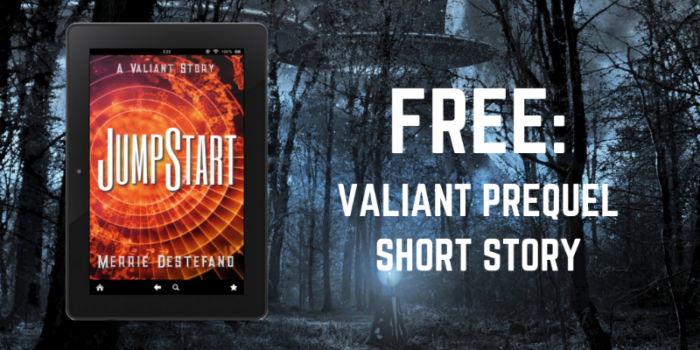
Available as a free digital download to Merrie Destefano newsletter subscribers.
Taken, my free novella sequel to Valiant, is told from Gabe’s point of view and it reveals even more of how free will and destiny work in this world. When traveling through the Corridor of Time, Gabe sees that some of the hallways and doors are collapsing and disappearing. He realizes that these were paths that led into possible futures—but those futures are no longer possible.
So, some possible futures have a time limit. Certain things need to be done in a certain amount of time or the outcome you were hoping for will no longer be available.
Let’s just say that in the Valiant series, there’s a cosmic ticking clock working in the background. All of the Rebel Xua know that they only have a certain amount of time to save Earth. If they fail to accomplish this in the allotted amount of time, it’s game over for every lifeform on our planet.
In Valiant, free will and destiny work hand in hand. But the greatest element in the entire equation is love, and this is shown in the relationship between Sara and her brother. Both of these characters will do anything to protect and save the other. That story element is based on 1 Corinthians 13:13. But that’s another article for another day.
I have Jumpstart, a free short story prequel to Valiant available as a free digital download to anyone who subscribes to my newsletter.
You can subscribe to my newsletter here.
Also, for anyone who has purchased, read, or reviewed Valiant, I have a free novella giveaway, Taken.
You can find out more about that giveaway and read an excerpt here.

































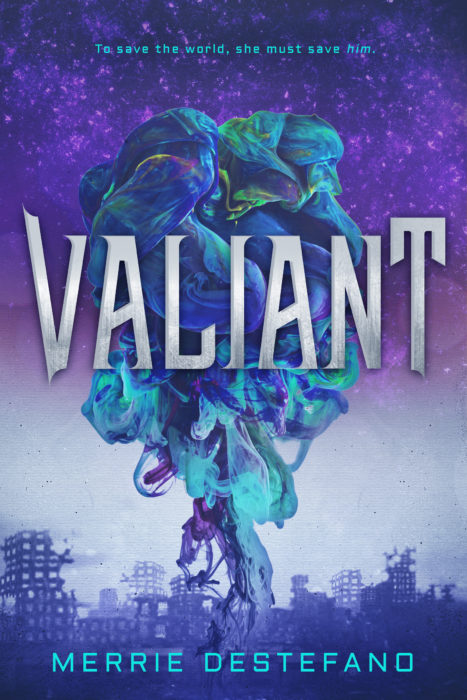
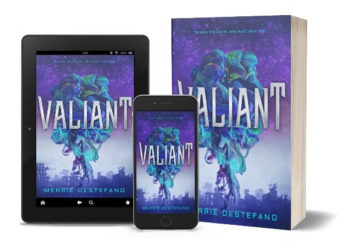
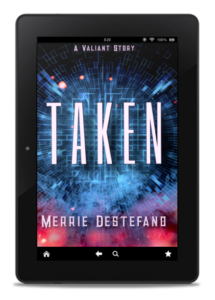



But how much did Uncle Kurt Vonnegut inspire you? Time-traveling aliens is one of his tropes, and in a lot of ways this story sounds kinda similar to The Sirens of Titan (tho I don’t think yours is nearly as dark-humor and depressing).
And how do you split the difference between free will and determinism, out of curiosity?
Hi! Sorry, I’ve never read anything by Vonnegut. =( But that’s not to say the concepts in Valiant are cutting edge and new. I was trying to bring the feel of classic SciFi to new teen readers and one book that inspired me was War of the Worlds and one movie was The Invasion of the Body Snatchers. But Edge of Tomorrow has a similar theme too. Since I’m not a theologian, I cannot say how to split free will and determinism, only that I believe both are true. Thanks for the comment!